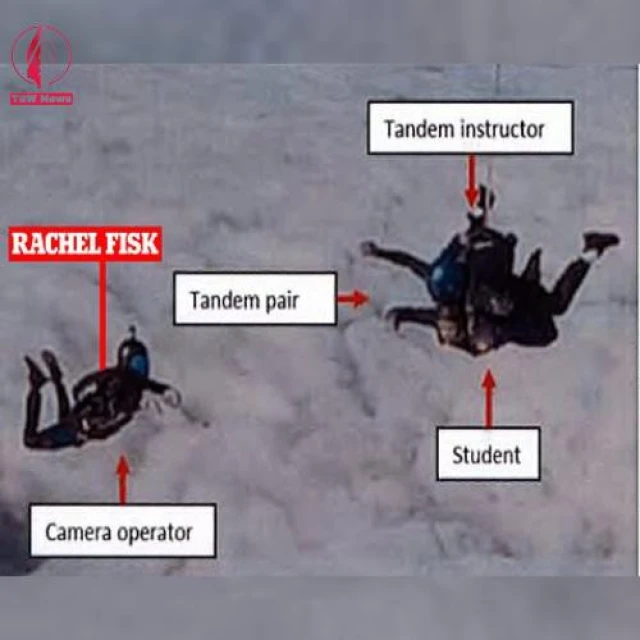EPS-95, Supreme Court Delivers Most Important and Historical Judgement
- Posted on November 4, 2022
- News
- By Akta Yadav
- 229 Views

EPS-1995- PENSION CASE- HISTORICAL AND MOST CRITICAL JUDGEMENT OF SUPREME COURT.
Made amendments to its
previous judgment in the same case.
Two main takeaways for today’s
judgement are:
Members to be allowed a further period of four months to
exercise the option of membership of EPS-1995.
Exempted and unexempted
establishments are to be treated equally.
Today, on 4th November
2022, the Honourable Supreme Court of India pronounced its judgment on several
pending Appeals against EPFO and the Government of India, in the matters of
EPS-1995 Pensioners.
The most critical decision is
that the Honourable Supreme Court upheld the Employees’ Pension Amendment
Scheme of 2014 but reads down provisions, and extends the deadline by Four
Months for those employees in service who did not exercise the option due to
lack of clarity.
The Employees Provident Fund
Organisation of India had notified in 2014 a new provision in Employees Pension
Scheme-1995 to be effective from 01.092014 whereby the ceiling for eligibility
for EPS-1995 pensions from Rupees
6500 was raised to 15000/- and thus EPS
membership was denied to the new employees who joined any establishment above
the ceiling of Rs 15000/- of basic pay calculated in the light of EPF Scheme
1952.
This Amendment was struck down by
the Hon’ble High Court of Kerala in EPFO Vs Sunil Kumar and Ors case. This
judgment of the Kerala High Court was later on upheld by the Hon’ble Supreme
Court which drew a series of Appeals from the EPFO for review of the judgment
of the Hon’ble Supreme Court. But now came the historical and most critical
judgment today on 04.11.2022 which up upheld the sanctity and legal validity of
the 2014 Amendment of EPFO .
The Supreme Court upheld the
validity of the 2014 Employees' Pension (Amendment) Scheme and set aside a
judgment of the Kerala High Court which had quashed the scheme . Today, a historical moment descended for the EPS-1995
Pensioners when a bench of Chief Justice of India Mr Justice Uday Umesh Lalit
and Justices Aniruddha Bose and Sudhanshu Dhulia read down certain provisions
of the scheme by allowing employees in service to avail the benefit of the
option under the Employees’ Pension Scheme (EPS), which permits the employer
and employee to make an uncapped pension contribution.
Employees who did not exercise
the option to join the scheme due to lack of clarity will be given another 4
months to exercise the same, the bench ruled. Pertinently, the bench upheld its
2016 judgment in RC Gupta vs Regional Provident Fund Commissioner in which it
was held that there can be no cut-off date to avail the benefit of the option
under the scheme.
The judgment came in a batch of
appeals, filed by the Employees Provident Fund Organisation (EPFO), challenged
orders of the Kerala, Rajasthan, and Delhi High Courts setting aside the 2014
Employees' Pension (Amendment) Scheme.
However, it excluded new members
who earned above ₹15,000 and joined after September 2014 from the scheme
completely. Existing members had to decide within six months from September
2014 whether they wanted to exercise the option to make uncapped contributions.
The amendments were then
challenged before various High Courts leading to the present batch of appeals
before the top court.
The Kerala High Court in 2018 had
while setting aside the 2014 amendments to the scheme, allowed paying pension
in proportion to the salary above the threshold limit of ₹15,000 per month. The
Court had held that there can be no cut-off date for joining the pension
scheme.
"The various proceedings
issued by the Employees Provident Fund Organization declining to grant
opportunities to the petitioners to exercise a joint option along with other
employees to remit contributions to the Employees Pension Scheme based on the
actual salaries drawn by them are set aside," the High Court had held.
The Supreme Court, 2019 dismissed
the EPFO's appeal against the same.
But in the review petition, the
dismissal order was recalled and the case was reheard by a division bench.
In August last year, the division
bench of the apex court referred the appeals to a 3-judge bench given the 2016
decision in RC Gupta vs Regional Provident Fund Commissioner.
The Court said that the following
questions would be considered by the three-judge bench:
Whether there would be a cut-off
date under paragraph 11(3) of the Employees' Pension Scheme
Whether the decision in RC Gupta
would be the governing principle based on which all these matters must be
disposed
In the RC Gupta case, the issue
before the Court was whether there was a cut-off date for employees to avail
benefit of the option under the Employees’ Pension Scheme (EPS), which permits
the employer and employee to make uncapped pension contributions.
Initially, when the EPS was
introduced in 1995, clause 11(3) of the scheme mandated that the maximum
pensionable salary was limited to ₹5,000, which was subsequently enhanced to
₹6,500 per month in 2001.
However, a couple of months after
the EPS was framed, a proviso was added to Clause 11(3) with effect from March
16, 1996, permitting an option to the employer and an employee for contribution
on salary exceeding ₹5,000 or ₹6,500 per month. 8.33 percent of such
contribution on full salary was required to be remitted to the Pension Fund.
The appellant-employees in the RC
Gupta case had, on the eve of their retirement i.e. sometime in the year 2005,
taken the plea that the proviso brought in by the amendment of 1996 was not
within their knowledge and, therefore, they may be given the benefit of the
same, particularly, when the employer's contribution under the Act has been on
the actual salary and not based on ceiling limit of either ₹5,000 or ₹6,500 per
month.
This contention was negatived by
the Provident Fund Authority on the ground that the proviso visualized a
cut-off date for the exercise of the option, namely, the date of commencement
of the scheme or from the date the salary exceeded the ceiling amount of ₹5,000
or ₹6,500 per month. As the request of the appellant-employees was after either
of the said dates, the same cannot be acceded to, it was argued.
The Supreme Court in RC Gupta
had, however, turned down this argument holding that reference to the date of
commencement of the scheme or the date on which the salary exceeds the ceiling
limit, the date from which the option exercised is to be reckoned with for
calculation of pensionable salary.
"The said dates are not
cut-off dates to determine the eligibility of the employer-employee to indicate
their option under the proviso to Clause 11(3) of the Pension Scheme," the
top court had said in RC Gupta’s verdict.
Pertinently, the top court in
that judgment had held that the exercise of option under para 26 of the
Provident Fund Scheme cannot be construed to estop the employees from
exercising a similar option under para 11(3) of the pension scheme.
In the instant case, counsel for
the EPFO argued that the pension and provident funds are distinct, and the
former is not guaranteed by having claims over the latter.
It was submitted that pension
retirees and provident fund retirees did not form a homogeneous class and that
the rules governing the Provident Fund Scheme were entirely different from the
Rules governing Pension Scheme.
Under the former scheme, the
contributions made by the employer and the employees during the employment of
the employee would be made over to the employee along with interest accrued
thereon at the time of his retirement. Thus, the obligation on the part of the
operators of the Provident Fund Scheme would come to an end, after the
retirement of the employee; whereas the obligation under the Pension Scheme
would begin when the employee retired. Under the former scheme, the liability
was only to pay interest on the amount deposited and to make over the entire
amount at the time of his retirement.
On the contrary, in the latter
scheme, it would be for the operators of the Pension Scheme to invest the
amount deposited in such a way that after the retirement of the concerned
employee the invested amount would keep on giving sufficient returns so that
the pension would be paid to the concerned employee not only during his lifetime
but even to his family members after his death, it was argued.
Thus, it was contended that if
the option under paragraph 11(3) of the Scheme, was to be afforded well after
the cut-off date, it would create great imbalance and would amount to
cross-subsidization by those who were regularly contributing to the Pension
Scheme in favor of those who come at a later point in time and walk away with
all the benefits. This most important
decision will have long lasting effect on the huge work force of India and the
Pension Body EPFO all together.




